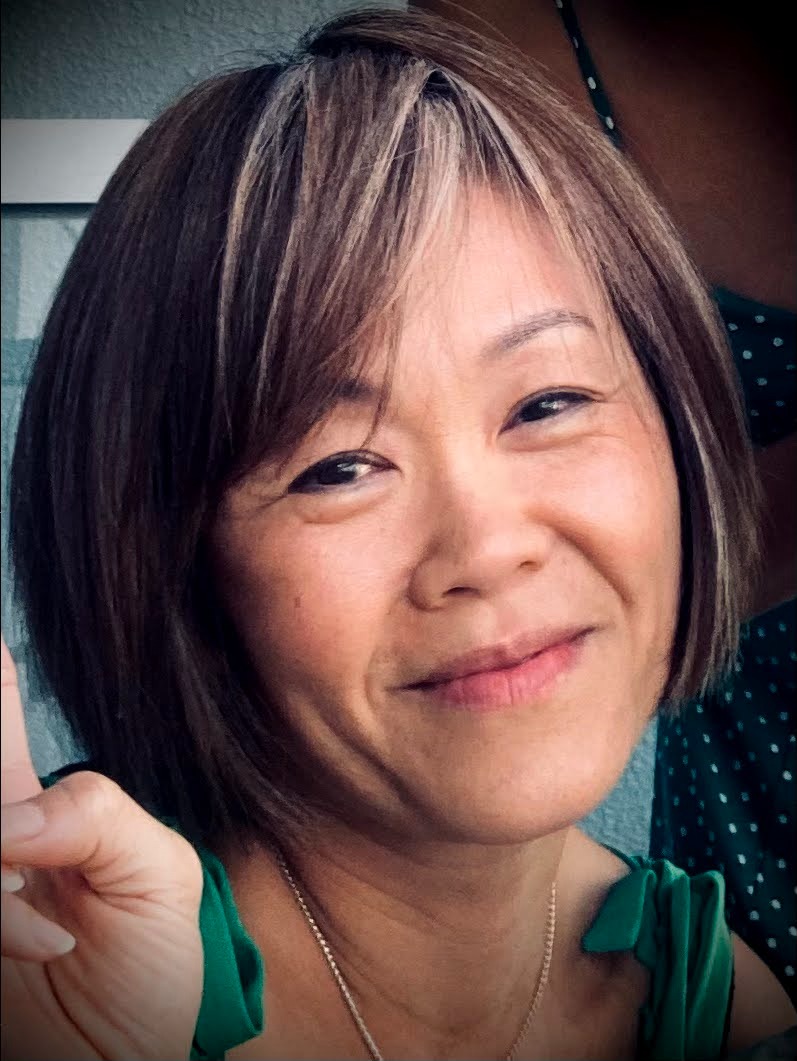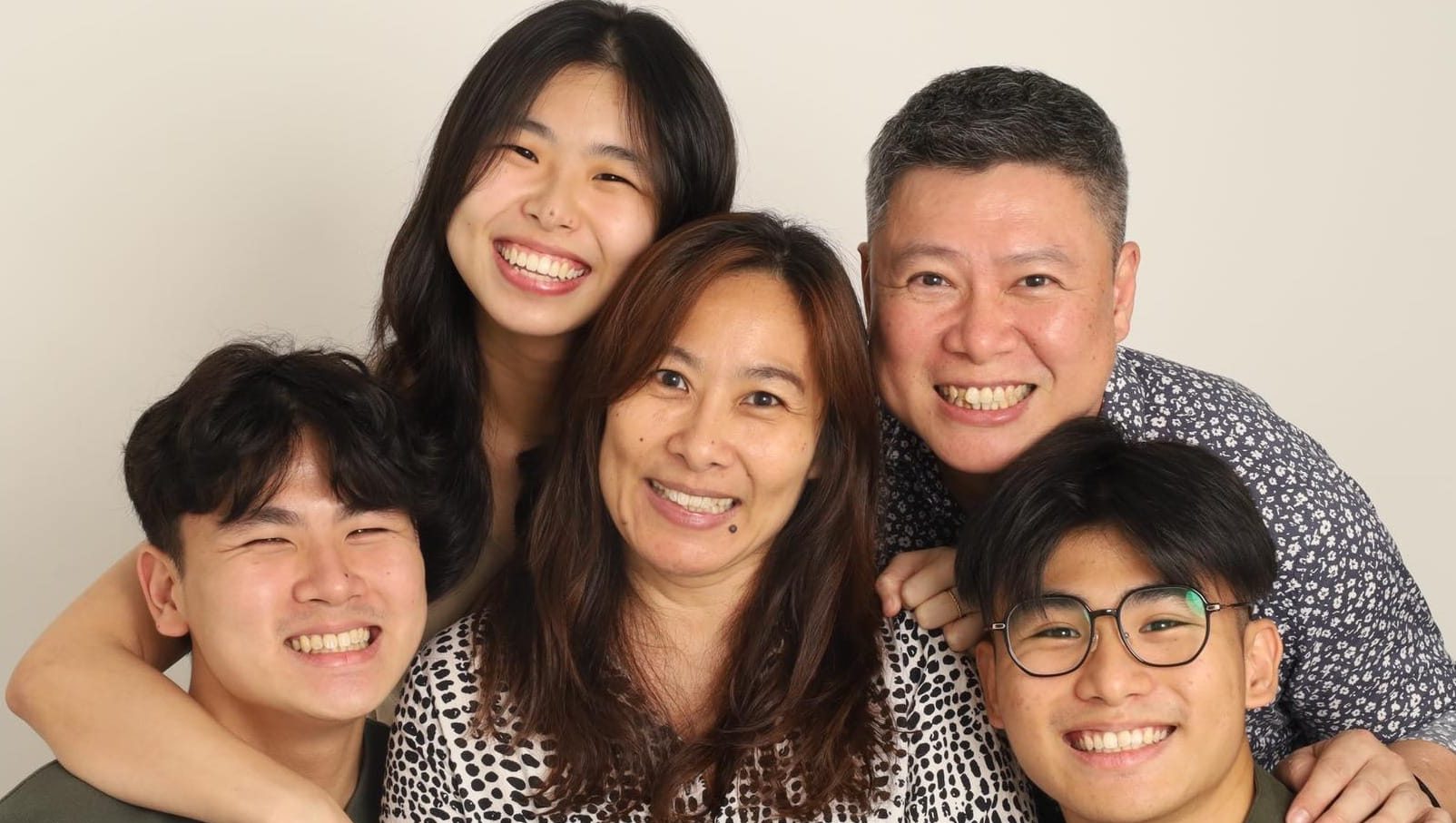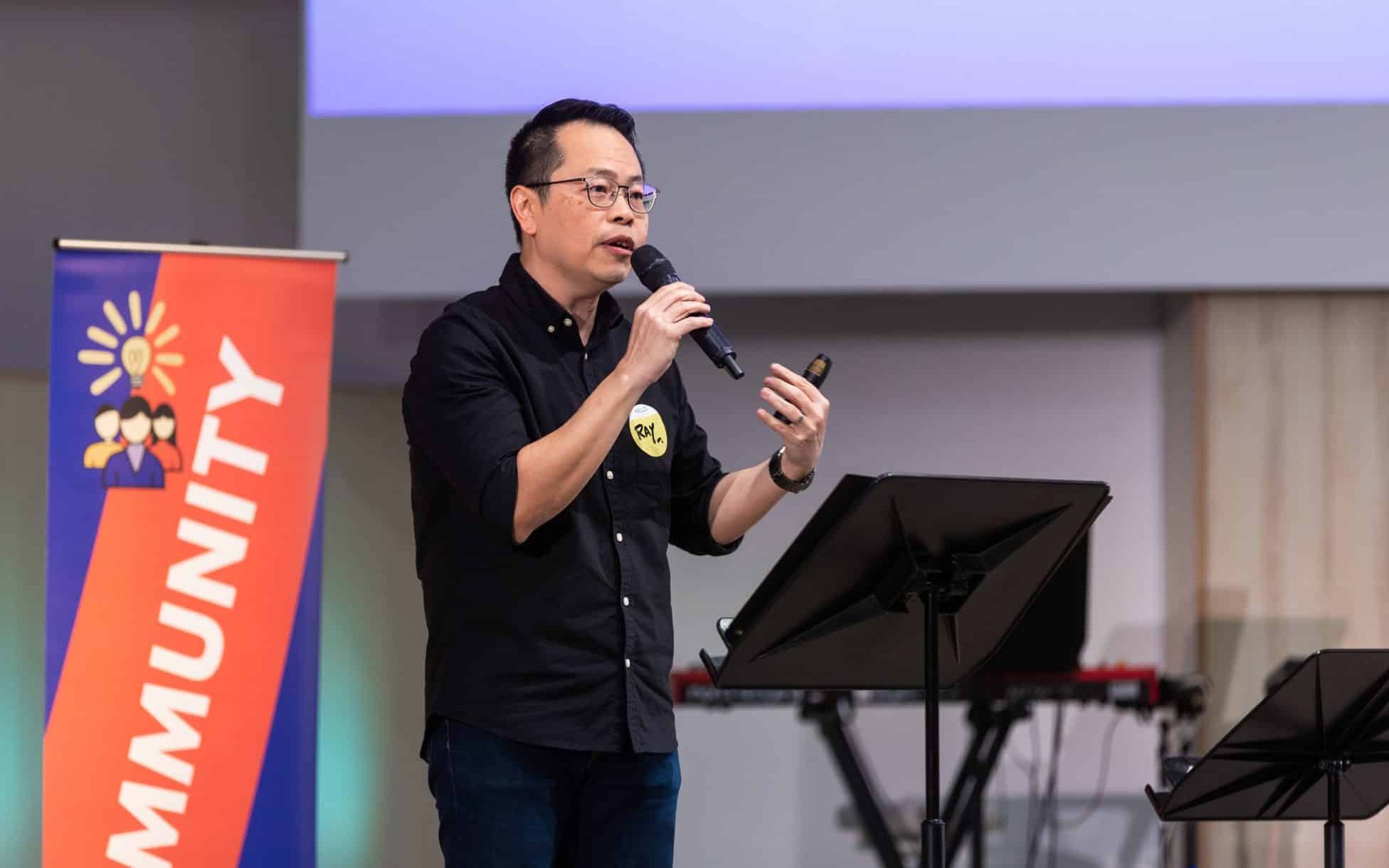Pastor Bill Wilson: “Will you be that ordinary Christian standing between the living and the dead?”
Peck Sim // July 22, 2024, 5:39 pm
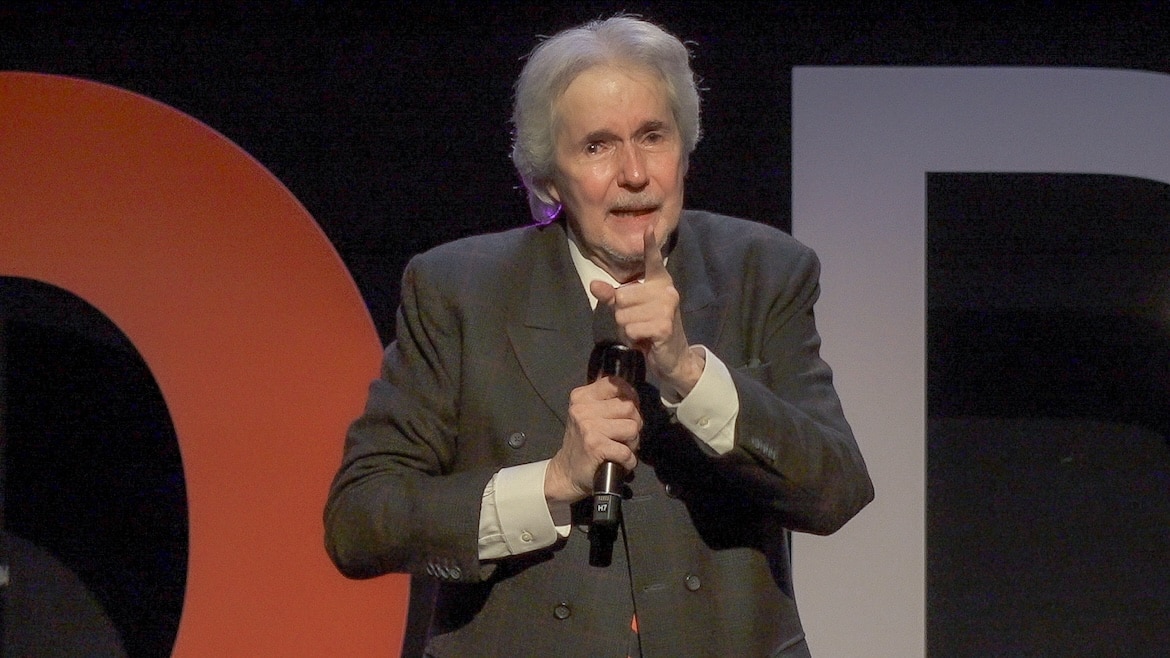
"Is it really possible for one ordinary Christian to make a difference?" Yes, said Pastor Bill Wilson, founder of Metro World Child, naming a host of ordinary people who have transformed lives in the Bible and at Metro. He preached at Bethesda Bedok-Tampines Church (BBTC) on July 13 and 14. All photos courtesy of BBTC.
Two women stepped over the body of a murdered mother lying in an apartment in the projects of the South Bronx, one of the roughest inner-city neighbourhoods in New York.
They took hold of the two children — a girl, 7, and a boy, 5 — who were left behind. The kids were regular attendees at the Sunday school conducted by Metro World Child.
The two women were staff members of Metro’s Sunday school ministry, which is conducted on the sidewalks of various neighbourhoods every Sunday. On Saturdays, these staffers would go and check in on the children and remind them about Sunday school.
“They are ordinary people,” Metro World Child Founder Pastor Bill Wilson told the congregation at Bethesda Bedok-Tampines Church (BBTC) on the weekend of July 13 and 14.
“But on that day, those two women stood between the living and the dead. And where they stood, it made a difference.”
Ps Bill was preaching at BBTC as part of his “The Fire of the Footprint (Deuteronomy 11:24)” Singapore tour which took place from July 9 to 20.
The following is an edited excerpt of Ps Bill’s message.
I was speaking at a conference and a pastor asked, “Pastor Bill, do you really believe that one ordinary person can make a difference in this thing we call Christianity?”
“When you are close to the urgency, it reaches over and grabs you by the throat.”
Is it really possible for one ordinary Christian to make a difference? The simple question is: What kind of people go out into a situation that is so urgent?
In Numbers 16, God’s people were complaining again. They were struggling with the leadership that God had given, which was Moses. They didn’t like the food, they didn’t like the water, they didn’t like the provision, they didn’t like the leadership.
There was about to be a revolution.
The people were getting ready to overthrow Moses and Aaron. God steps up and 14,700 people start falling over dead (Numbers 16:47). Moses turns to Aaron, and he says, “Do something!”
That is what urgency does.
When you are close to the urgency, it reaches over and grabs you by the throat. If you allow yourself to get close enough to the urgency, suddenly something changes in you.
Moses says to Aaron, “Run to the altar, get some fire and just get out there!” So Aaron grabs a censer and runs to the altar where the fire of God is.
He scooped up some fire from the altar and he stood between the living and the dead. Where he stood, the plague was stopped (Numbers 16:48).
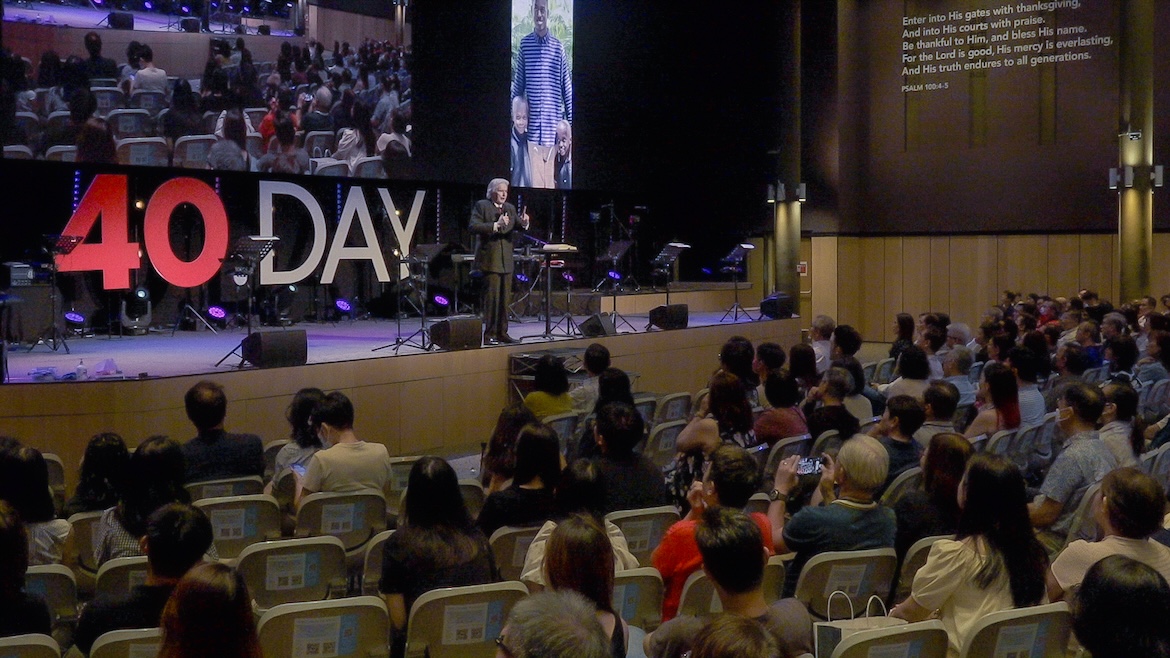
“I wonder what could happen if some of you ordinary folks say, ‘Hey, maybe I just need to run to the altar. Maybe I just need to see what the needs are,’” Ps Wilson challenged the congregation.
The first thing I noticed was that Aaron was only thing in this story that stood between the living and the dead. The denomination did not go, the congregation did not go, a committee did not go.
Aaron with the fire was the only thing that stood between the living and the dead.
Back in New York City, we have a Sunday school in the South Bronx. We visit every kid in our Sunday school every week. We knock on doors the day before Sunday school to make sure the kids are ready.
There were two kids at that Sunday school: The girl was seven and her little brother was five. They were not mentally retarded, they were just slow, but they were so faithful. They came to Sunday school every week.
Aaron ran into the middle of the urgency where people were dying. Where he stood, the death stopped (Numbers 16:48).
Two of the female staff of Metro World Child were knocking on the door of these kids the day before Sunday school: The TV was on in the apartment, but the mother was not answering the door.
The women smelled something. They knew something was wrong so they called the police. The cops came and broke down the door of the apartment.
They saw the mother lying just inside the door. Her throat had been cut. She had been dead for almost a week.
The two kids were sitting on the couch, watching television, and ripping pieces off a cereal box and eating them because that was the only “food” they had. They didn’t even know how to process what had happened.
The cops only let the women in to the crime scene after three hours, when it became apparent no one was coming to help the kids. The sergeant said to the women, “Look, I know you said you know these kids. Can you help us?”
The women said yes, and that was how they were able to step over the body of the dead mother to get to the children.
One of these women only made it to the 10th grade in high school (equivalent to secondary four). She had to go to work to take care of her mother who was dying of cancer. The other woman was so poor she had one dress that she wore every day.
You’ll never see them in a magazine. They will never get interviewed. They are just ordinary people. But that day in the Bronx in New York City, those two women stood between the living and the dead.
And where they stood, it made a difference.
“The need is the call”
I’ve said for years that the need is the call. I’m so tired of Christians telling me I’m waiting for God to call me.
The saddest thing I see is 50-, 60-, 70-year-old people that have been waiting for God to call. And then one day you realise the need was right in front of you.
If you see the need today and you can feel it, that, my friend, is the call of God for you this day.
Do you know how old Aaron was at that time? He was 100 years old. What did Moses say? He said, “Run to the altar! “
Those two women stood between the living and the dead. And where they stood it made a difference.
But you say he’s 100, he’s not running anywhere. But verse 47 says he ran. Isn’t it amazing what you can do that you thought you could not do?
The third thing I noticed about Aaron was that he just did what he knew to do. Moses said “Go, run, get the fire.” Aaron did.
You know who the guy in the blue suit is: That’s the kid that got left on the corner because my mother didn’t want me anymore.
The other guy is the guy who picked me up off the street in 1960. You are looking at the most ordinary Christian guy that you will ever see: He worked in a machine shop his whole life to feed his family and take care of his kids.
Even when his other boy was dying of leukemia — he was on his way to visit his own son in hospital — he stopped for me. So, take a good look at what ordinary looks like.
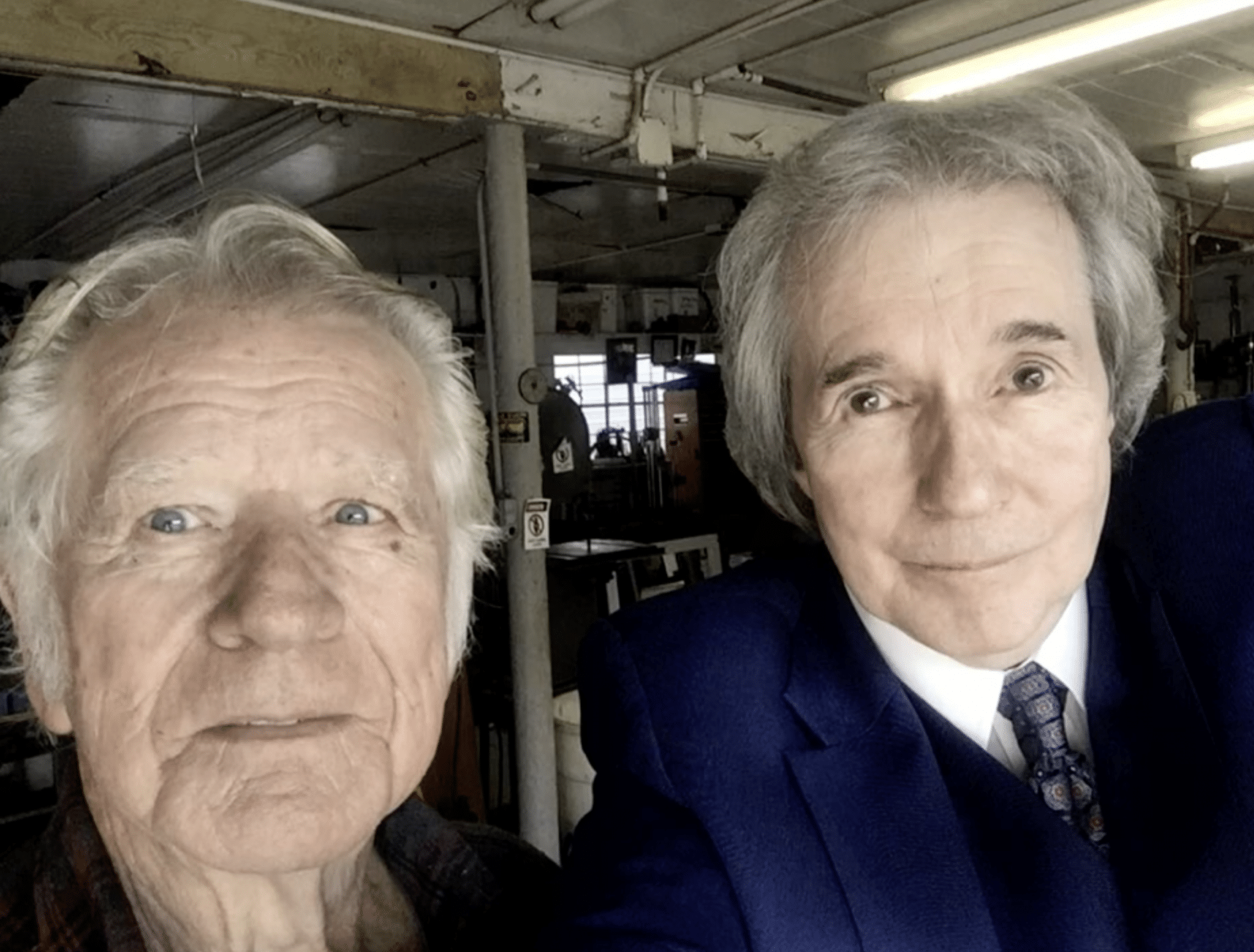
Ps Bill (right, in the blue suit) with Dave Rudenis, the man who picked him up from the street corner where his mother abandoned him at the age of 12. Because of that ordinary man, Metro World Child exists today.
We’ve got a house full of ordinary people this morning. I wonder what could happen if some of you ordinary folks say, “Hey, maybe I just need to run to the altar. Maybe I just need to get some fire and see what the needs are.”
There’s a little boy in heaven today because there was one lady who saw a little boy that nobody loved and nobody wanted.
There was a lady from Puerto Rico that gave her life to Christ when she came to our church in Brooklyn. She couldn’t speak any English but came up to me and said through an interpreter, “Pastor Bill, I give my life to Christ. He’s done so much for me. I need to do something to serve him.”
She did not speak English so we had her on a different bus each week to just sit there and love the kids.
She would sit on the first step right next to the driver and she would look for the dirtiest, poorest kid. And she would put the kid on her lap. And she learned how to say, “I love you. Jesus loves you.”
She did that for at least six months, on a different bus every week. And she came to me one day, and she said, “Pastor Bill. I don’t want to change buses anymore.”
I found out she had connected to one little boy on a bus she had been on. He lived in a drug house not far from our church. He was six years old. And he was very dirty.
We didn’t know if he couldn’t talk, or wouldn’t talk. But he would just sit on her lap, and she would say, “I love you. Jesus loves you.”
If you see the need today and you can feel it, that is the call of God for you this day.
A couple of weeks before Christmas, the bus pulled up to the little boy’s apartment building and she said the same thing, “I love you, Jesus loves you.”
This time, instead of just jumping off her lap, he stood up, put his hands on this lady’s face and tried to tell her: “I-I-I love you too.” And he gave her a big hug, got off the bus and went in the back of the drug house.
At 6.30 that night, that little boy’s mother – who was a drug addict – took a baseball bat, cracked his skull open and killed him, put him in a garbage bag and threw him out under the fire escape.
I did a funeral several days afterwards with just a couple of the staffers and the lady.
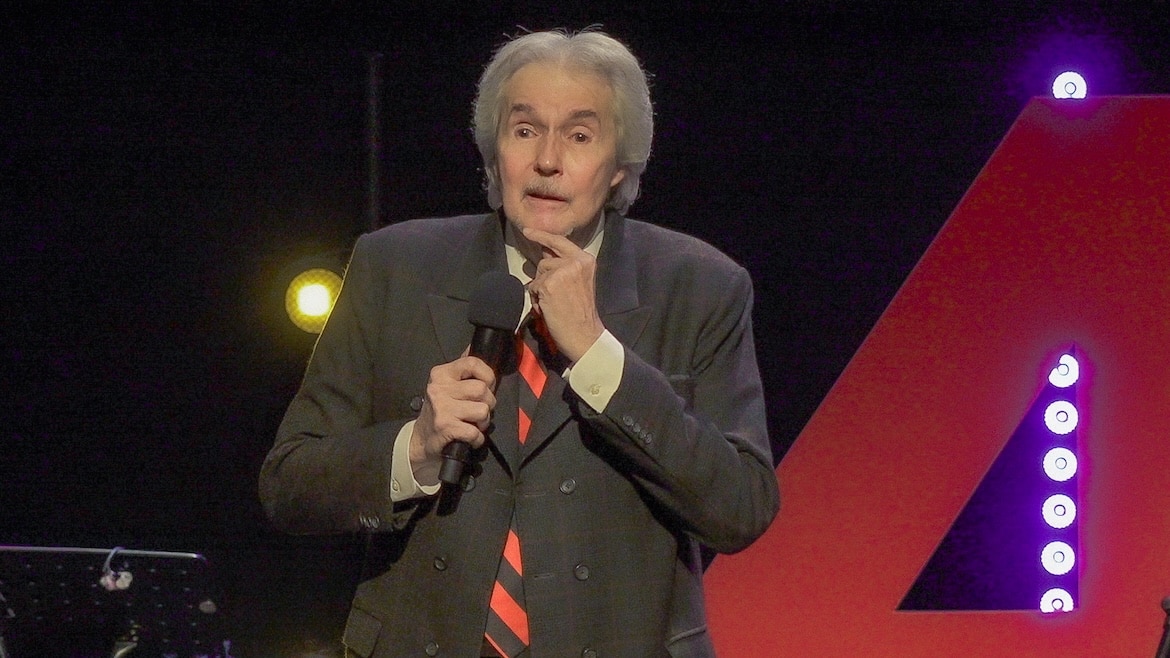
“I am not done yet. Neither are you,” Ps Wilson said.
Before the little boy died, one of the last things he heard from a lady who couldn’t even speak English was, “I love you. Jesus loves you.”
There’s a little boy in heaven today because there was one lady who saw a little boy that nobody loved and nobody wanted.
Back to what the pastor at the conference asked, “Do you really think one ordinary person can make a difference?”
Aaron was not the most spiritual guy, not the greatest Old Testament character, but he was just close enough to the urgency. He ran to an altar, got some fire and he stood between the living and the dead.
People have been chastising me because I’m going back to Ukraine at 75. But I am not done yet.
Neither are you.
RELATED STORIES
We are an independent, non-profit organisation that relies on the generosity of our readers, such as yourself, to continue serving the kingdom. Every dollar donated goes directly back into our editorial coverage.
Would you consider partnering with us in our kingdom work by supporting us financially, either as a one-off donation, or a recurring pledge?
Support Salt&Light